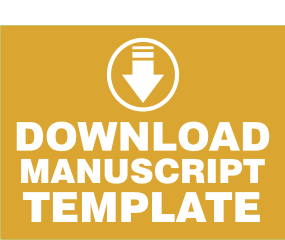Difference In Effectiveness Of Conventional Learning And E Learning Using Whatsapp Application In SD Gugus IV Kecamatan Tanasitolo Kabupaten Wajo
(1) Universitas Negeri Makassar
(2) Universitas Negeri Makassar
(3) Universitas Negeri Makassar
(*) Corresponding Author
DOI: https://doi.org/10.26858/ijest.v2i1.33907
Abstract
Full Text:
PDFReferences
Astuti, C. C., Sari, H. M. K., & Azizah, N. L. (2019). Perbandingan Efektivitas Proses Pembelajaran Menggunakan Metode E-Learning dan Konvensional. Proceedings of the ICECRS, 2(1), 35. https://doi.org/10.21070/picecrs.v2i1.2395
Bambang Warsita. 2015. Teknologi Pembelajaran (Landasan & aplikasinya). Jakarta: PT RINEKA CIPTA.
Deassy May Andini dan Endang Supardi. (2018). Kompetensi Pedagogik Guru Terhadap Efektivitas Pembelajaran Dengan Variabel Kontrol Latar Belakang Pendidikan Guru. Jurnal Pendidikan Manajemen Perkantoran. Vol. 1, No. 2, hal. 1-7, Januari 2018.
Djam’am Satori dan Asep Irawan. 2013. Pengaruh Regulasi, Pembiayaan dan Partisipasi Masyarakat Terhadap Efektivitas Manajemen Sarana Prasarana Sekolah, dan Dampaknya Terhadap Efektivitas Pembelajaran pada Sekolah Menengah Pertama se Kota Sukabumi. Jurnal Administrasi Pendidikan. Vol. XVII, No. 1, Oktober 2013.
Fakhrurrazi, F. (2018). Hakikat Pembelajaran Yang Efektif. At-Tafkir, 11(1), 85. https://doi.org/10.32505/at.v11i1.529
Fatimah, F., & Kartikasari, R. D. (2018). Strategi Belajar Dan Pembelajaran Dalam Meningkatkan Keterampilan Bahasa. Pena Literasi, 1(2), 108. https://doi.org/10.24853/pl.1.2.108-113
Jumiatmoko, M. (2016). Whatsapp Messenger Dalam Tinjauan Manfaat Dan Adab. Wahana Akademika: Jurnal Studi Islam Dan Sosial, 3(1), 51. https://doi.org/10.21580/wa.v3i1.872
Kemendikbud. (2020). Surat Edaran Nomor 4 Tahun 2020 Tentang Pelaksanaan Kebijakan Pendidikan Dalam Masa Darurat Penyebaran COVID-19. Jakarta: Sekretariat Negara.
Kurniasari, A., Pribowo, F. S. P., & Putra, D. A. (2020). Analisis Efektvitas Pelaksanaan Belajar Dari Rumah (BDR) Selama Pandemi Covid - 19. Jurnal Kajian Pendidikan Dan Hasil Penelitian, 6(3), 246–253.
Makarima, M. M. (2019). Pemanfaatan Aplikasi Daring Media Sosial WhatsApp , sebagai Media Pembelajaran Bahasa Arab Berbasis ICT ( Information and Communication Technologies ). Jurnal Ekonomi Dan Dakwah Islam (Al-Tsiqoh), 05(02), 135–142.
Pane, A., & Darwis Dasopang, M. (2017). Belajar Dan Pembelajaran.FITRAH: Jurnal Kajian Ilmu-Ilmu Keislaman, 3(2), 333. https://doi.org/10.24952 /fitra v3i2.945
Pirapuraj, P., Rishan, U. M., & Ali, S. N. (2019). E-LEARNING AT HOME VS TRADITIONAL LEARNING AMONG HIGHER EDUCATION STUDENTS : A SURVEY BASED ANALYSIS INTRODCTION E-learning and traditional face to face learning are most important learning process and being practiced by students who are reading their fir. November, 213–221.
Pustikayasa, I. M. (2019). Grup WhatsApp Sebagai Media Pembelajaran. Widya Genitri : Jurnal Ilmiah Pendidikan, Agama Dan Kebudayaan Hindu, 10(2), 53–62. https://doi.org/10.36417/widyagenitri.v10i2.281
Rohana, Rohana and Fatun, Fatimah Azahra and Taufiqurrahman, Muh (2020). Impact Of Corona Virus On Health Economy, And Education. In: Corona Pandemic (Covid 19) And Interdiscipline Issues, Akshita Publisher And Distributors Delhi-110053 India, pp. 1-217.
Ucu, N. L., Paturusi, S. D. E., & Sompie, S. R. U. A. (2018). Analisa Pemanfaatan E-Learning Untuk Proses Pembelajaran. Jurnal Teknik Informatika, 13(1). https://doi.org/10.35793/jti.13.1.2018.20196
Yusuf, B. B. (2017). Konsep Dan Indikator Pembelajaran Efektif. In Jurnal Kajian Pembelajaran dan Keilmuan (Vol. 1, Issue 2, pp. 13–20).
Article Metrics
Abstract view : 152 times | PDF view : 24 timesRefbacks
- There are currently no refbacks.
Copyright (c) 2022 Andi Reski Febriawan, Rohana Rohana, Nurhaedah Nurhaedah

This work is licensed under a Creative Commons Attribution-NonCommercial-ShareAlike 4.0 International License.
International Journal of Elementary School Teacher
ISSN 2776-6233 (online)
Email: ijes@unm.ac.id

This work is licensed under a Creative Commons Attribution-ShareAlike 4.0 International License.









